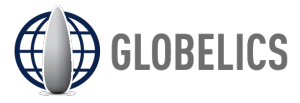 Globelics is a worldwide network of more than 2000 scholars engaged in research on how innovation and competence building contribute to economic and sustainable development. The network is open and diverse in terms of disciplines, perspectives and research tools.
Globelics is a worldwide network of more than 2000 scholars engaged in research on how innovation and competence building contribute to economic and sustainable development. The network is open and diverse in terms of disciplines, perspectives and research tools.
The next annual Globelics Conference will be held in Greece, in Athens, on October 18-20, 2017. The Conference will be organised by the Laboratory of Industrial and Energy Economics (LIEE) at the National Technical University of Athens (NTUA), the oldest (established in 1837) and most prestigious academic institution in Greece in the field of Technology and Engineering. LIEE/NTUA is a well-established academic unit, active in socioeconomic research with particular focus on innovation, entrepreneurship, ICTs, energy and sustainable development in Greece and Europe. The Laboratory has also developed particular competencies in policy analysis, and in the design and implementation of empirical research and has participated in more than 130 research projects during the last 25 years.
Athens will be the first European town to host the Globelics annual conference. This was considered as an opportunity to highlight the challenges for a country hit by the recent economic crisis. Innovation and competence building in the context of industrial and institutional change is considered to be of great importance when envisaging a strategy out of the crisis.
The general issues to be addressed during the annual conference are the following:
- Inequality in the age of Globalization: Widening disparities within countries, regions, and social classes. Do we need new approaches?
- Slowdown in the global economic growth, stagnation and depression in large parts of the globe. Has the era of easy economic growth ended?
- Do we need to tackle new challenges related to innovation and capacity building in addition to our systems of innovation approach? New challenges for open science and open innovation.
- What is the role of the different type of actors (State, local authorities, Continental entities, knowledge institutions, productive, political and social actors) in shaping innovation and capacity building in a context of uneven globalization, financialisation, austerity policies, environmental and social risk?
- How can innovating out of the crisis systems of policies be designed and implemented at different levels, and in different areas of the world?
Please find further information about Globelics at http://www.globelics.org


